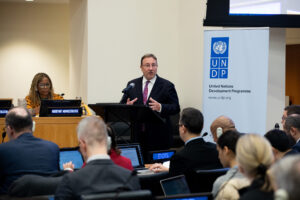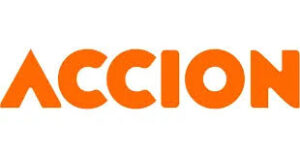As Silicon Valley retreats, development-minded investors see opportunity in Africa’s financial inclusion gap
The Story
While Silicon Valley’s appetite for African ventures has demonstrably cooled, Accion Ventures—the investment arm of a Washington-based global nonprofit—has secured $61.6 million for its second fund, nearly doubling its previous $33 million vehicle raised in 2019. The final close, announced in September 2024, attracted backing from Dutch development bank FMO, France’s Proparco, the Ford Foundation, and corporate giants Mastercard and MetLife.
The fund’s composition reveals the shifting geography of African venture capital. Where pure-play venture firms increasingly struggle to raise dedicated Africa funds, patient capital from development finance institutions and impact-minded corporates continues flowing toward the continent’s financial inclusion agenda. Accion plans to deploy up to $1 million per startup across early-stage fintech companies, having already invested in Nigerian payroll platform PaidHR and Kenyan e-commerce startup Flowcart (formerly Sukhiba).
The timing appears strategic rather than coincidental. Co-managing partner Amee Parbhoo notes that despite global fundraising headwinds, the firm observes “probably the strongest founders” emerging in focus markets. This assessment comes after Accion recorded three successful African exits—Kenyan agricultural firms Apollo Agriculture and Pula, plus South African SME lender Lula—providing tangible returns that strengthen the case for continued African exposure.
The Context
Accion’s fund raise occurs against a backdrop of pronounced venture capital retreat from African markets. The continent’s startup funding peaked at nearly $5 billion in 2022 before retreating sharply, though 2024 activity suggests potential recovery above the 2022 low of $2.2 billion. This volatility has created a bifurcated market: opportunistic investors have largely withdrawn, while mission-driven capital sources perceive increased opportunity amid reduced competition.
The shift reflects broader changes in global venture dynamics. Rising interest rates eliminated the free money that fueled speculative emerging market investments during 2020-2021, forcing investors toward markets with clearer paths to profitability. For African fintech, this discipline arguably benefits long-term ecosystem health by eliminating overheated valuations and unsustainable business models.
Accion’s success securing development finance backing highlights an underappreciated trend: impact-focused capital increasingly fills gaps left by retreating commercial venture funds. Development finance institutions possess longer investment horizons and social return mandates that align with African fintech’s financial inclusion mission, creating natural partnership opportunities for funds capable of demonstrating measurable impact alongside financial returns.
The fund’s focus on early-stage deals—up to $1 million per investment—addresses a specific gap in the African funding landscape. While larger funds like Partech Africa ($300 million) and Norrsken22 ($205 million) target growth-stage opportunities, seed-stage companies often struggle accessing institutional capital, creating opportunity for specialized seed investors with patient capital structures.
The Intelligence
For venture capitalists, Accion’s successful fundraising demonstrates that African fintech remains attractive to investors with appropriate return expectations and impact mandates. The key insight: rather than competing with growth-focused funds for hot deals, patient capital investors can access better valuations and stronger founder relationships during market downturns.
The development finance backing proves particularly instructive. Dutch FMO and French Proparco represent billions in deployable capital seeking measurable development impact, suggesting substantial dry powder remains available for funds capable of articulating clear social returns. This capital source offers structural advantages: longer hold periods, higher risk tolerance, and strategic value beyond pure financial returns.
Parbhoo’s observation about founder quality during market stress echoes patterns observed across venture cycles. Economic volatility often eliminates less committed entrepreneurs while strengthening those building sustainable businesses. For investors, this suggests counter-cyclical deployment strategies may yield superior risk-adjusted returns compared to bull market investing.
The successful exits—Apollo Agriculture, Pula, and Lula—provide crucial proof points for African fintech viability. These companies achieved liquidity despite operating in traditionally challenging sectors (agriculture) and markets (Kenya, South Africa), suggesting that business model innovation can overcome structural constraints when properly capitalized and supported.
Corporate backing from Mastercard and MetLife signals strategic interest from established financial services players seeking African market entry. Rather than direct investment, these corporates may increasingly partner with specialized funds that offer local market expertise and deal flow access, creating win-win arrangements for both parties.
The Bridge
For VCs Reading This: “If you missed this funding cycle, consider three parallel opportunities:
- FinDev Canada – $200 million committed to African financial inclusion, seeking fund partnerships with demonstrated impact measurement capabilities
- British International Investment (BII) – Recently allocated $500 million for African climate and financial services, partnering with specialized fund managers
- IFC Venture Capital – $250 million dedicated emerging market fintech fund, currently evaluating regional partnerships for 2025 deployment”
Development Finance Active in This Space: “- FMO Netherlands – $2.8 billion annual investment capacity, increasingly partnering with VC funds rather than direct deals; average partnership commitment $10-50 million
- Proparco France – €2 billion under management with dedicated fintech allocation, seeking African fund partnerships with clear development metrics
- DEG Germany – Recently increased African allocation to €500 million, particularly interested in financial inclusion and climate adaptation themes”
For Founders Reading This: “Key takeaways for accessing patient capital:
- Emphasize measurable impact metrics from day one—development finance requires specific social return documentation that commercial VCs often ignore
- Target seed rounds of $500K-$1M rather than larger growth rounds—current market conditions favor smaller, disciplined capital raises over growth-at-all-costs strategies
- Build relationships with mission-aligned funds early—Accion’s portfolio companies report more strategic support and industry connections compared to purely financial investors
- Consider B-Corp certification or similar impact frameworks—development finance institutions increasingly require formal impact governance structures
- Focus on financial inclusion narratives—serving underbanked populations aligns with development mandates while addressing large addressable markets”
Accion’s contrarian bet on African fintech during a venture winter suggests that patient capital may increasingly define the continent’s next funding cycle. As commercial venture retreats, development-minded investors are positioned to capture both financial returns and social impact from Africa’s ongoing digital transformation.








